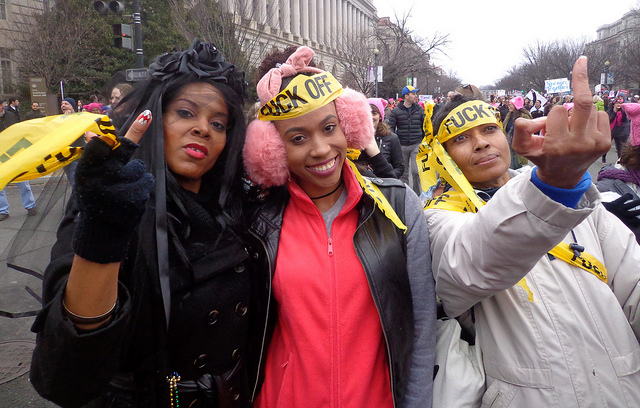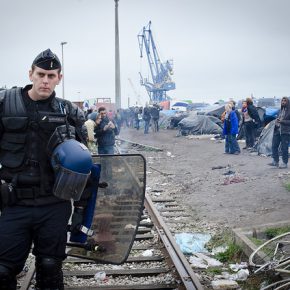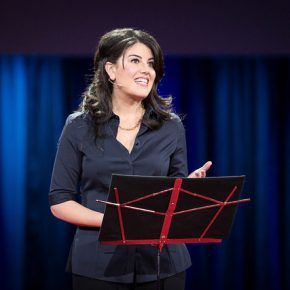To read #metoo testimonies from many women and some men on social media concerning the sexual harassment and assaults they have endured is to be horrified at the accounts. The sadness brings a quiet. It becomes inappropriate to speak.
Rather, I read and listen to the voices. Such as when a valued colleague recounts her violent rape as an 18-year-old, her reluctance in speaking about the experience, and wondering aloud whether she should name the man. It is hard to imagine the difficulty in enunciating these words and the rage that the memory occasions. I am, again, horrified.
These online stories, in turn, provoke other memories for me, as when a close friend told me of her gang rape decades ago by three men on an operating table where she lay half-sedated, having gone to a private clinic for a minor foot operation. She did not make a police report either, thinking no one would believe that a surgeon immobilized and invited friends to rape her. I listen, remain quiet, absorb the anger, mourn, and console. There is a conundrum in witnessing: it is impossible to accept the injustice, yet one realizes there will be no justice for the perpetrators.
I have a complex perspective. For the past 18 months, I have been teaching a weekly poetry workshop at a large sex offenders unit of the Arizona state prison system. These are exactly men guilty of the sexual assaults under discussion.
They include men just barely over 21 until their 80s, men convicted of rape, lesser degrees of sexual assault, child rape, and child pornography. They range from high school drop-outs to doctorates, a very wide educational range inside a classroom. Given the harshness of Arizona sentencing guidelines, most are in prison for at least 10-20 years; a few have stacked consecutive sentences lasting beyond human lifespans. One well-known case involves a voyeur sentenced to several centuries’ imprisonment although he never touched anyone.
These men are a friendly and for the most part likeable group. That same friendliness and welcoming attitude makes for a relationship that is both simple and complicated. It is simple on a personal basis and more complex at a broad social level. We speak pleasantly as fellow humans enjoying a poem and the talk that accompanies its reading. Yet we do so in an institutional context that limits and shapes our interactions. Some topics, such as the crimes committed, are off-limits.
https://www.youtube.com/watch?v=sFEjSL1I92c
Although I have taught in prison since 2009, this past year and a half is the first time I have worked on a SO (sex offender) yard. About five years ago I attended a dramatic performance organized by one of our program teachers on another SO yard. It makes a difference watching a play when you know that a lead actor raped and murdered his teenage girlfriend and that the tall fellow off to the side is spending ‘all day’ (a life sentence) as a serial child rapist. Just as I do not subscribe to theories of literary criticism that call on readers to ignore biographical information about authors, neither do I ignore the biographies of imprisoned students.
The social media venom that pours out onto the disembodied perpetrators following #metoo narratives is in stark contrast to the amiable fellowship and conversation in our poetry workshop. The men sitting here are likeable, concerned for self-improvement, and want to express themselves despite frequent inexperience with putting emotions into words. At least publicly, most deeply regret their acts. They also recognize that few care to hear these regrets. As a teacher, I come to teach and not to judge. Courts have judged all the students and few will ever escape that judgement.
Although it might seem contradictory, I am sympathetic in different ways to both sexual assault victims and those imprisoned for such crimes. William Alcott – a well-known 19th-century Massachusetts educator, physician, and member of the famous Alcott family – argued that criminal acts and human sympathy were separate. Sympathy did not tolerate, excuse, or mitigate outrageous crimes. In prisons, humanity recognized itself even in the midst of social degradation. Sympathy discovered a commonality despite these wrongs – Alcott, a devout Christian, used ‘sin’ to describe such wrongs – and by expressing itself sought to work against repetition of crimes.
Today prevailing public attitudes would laugh at Alcott as a complete naif. There is no sympathy for sex offenders. The demonization that attaches to them is ferocious. It reaches beyond anger into a determination to stigmatize every inch of life lived forward. It promotes spurious pop-psychology claims about untreatable behavior, impossible rehabilitation, and inevitable repetition of sexual offenses.
The public treats sex offenders as the evilest of evils, people we must shun in perpetuity. Once released, registered sex offenders face a maze of state and local residence restrictions that create ‘SO ghettos’ that have absorbed hundreds of thousands in miserable housing conditions, often in falling-apart trailer parks. Some localities prohibit registered sex offenders from visiting libraries, parks, and beaches.
The crimes committed are unspeakable, yet we must speak about them. What the mass outpouring of the post-Weinstein #metoo online movement highlights is that sexual harassment and assault permeate societies. Our school, work and residential communities are filled with respectable men who have hidden (or for some, not so hidden) histories of sexual assault. The men sitting in SO units are a very small proportion of the assailants. While criminal justice statistics on sex crimes can be of questionable reliability, the common estimate is that at least two out of every three sexual assaults go unreported. Only a very small number of assaults lead to arrest, prosecution, and incarceration.
In short, the prisoner-students sitting in my class are among the relatively few caught. The rest, the vast majority of assailants, are leading undisturbed lives outside prison. If only a small percentage of sex offenders face penal consequences, a full one hundred percent of their victims live with the trauma, psychological and physical harms.
What is it to live in a society where one realizes that sexual assault is both prevalent and vastly under-reported? Or, where a man who has attempted or committed sexual assaults that would earn prison time for those without full-time legal defense teams, yet is nonetheless elected to the US presidency?
Much of the US public averts its eyes and turns away, just as millions of Trump voters did with either full awareness of the man’s history or preferring denial. Those voters shrugged off ‘pussy-grabbing’ as mere libertine behavior despite its being that same sexual assault that landed many prisoners in the SO yard where I teach. We pay attention to witnesses or shut them out depending on political or social convenience. The millions of #metoo hashtags signal testimony, but social denial mechanisms work in opposition.
Unknown, unregistered sex offenders are far more common than the registered variety. It takes arrogant blindness to point righteously to those with convictions and refuse to recognize the un-convicted. One of the reasons sex offenders draw such opprobrium is that we can shift our fears onto a known party rather than acknowledge the prevalence of sexual predation in our societies. Sex offenders mirror a dark aspect of human psychology and we despise the encounter.
In the early 1980s, Catherine MacKinnon made the point that rape culture is invasive, pervasive, and instrumental to the legal systems that perpetuate male domination and its gender colonialism. Rape, as she argued, involved far more than physical penetration of another resistant body. It represents an entire set of oppressive social relations, not only a criminal offense. MacKinnon and others went on to apply this analysis to mass rape in Bosnia-Herzegovina as an instrument of state and nationalist violence. Women’s bodies, they argued, were part of the battlefield.
#metoo describes another social battlefield. At a time when xenophobic nationalism has seized the United States, #metoo provides more than individual witness. It points to rampant sexual aggression, harassment, and rape as vital to understanding the violence so deeply embedded in US culture, social relations, and government. Donald Trump is only the latest and crudest in a line of presidential sex offenders. We are a sex offender nation.
Photograph courtesy of scottmontreal. Published under a Creative Commons license.





